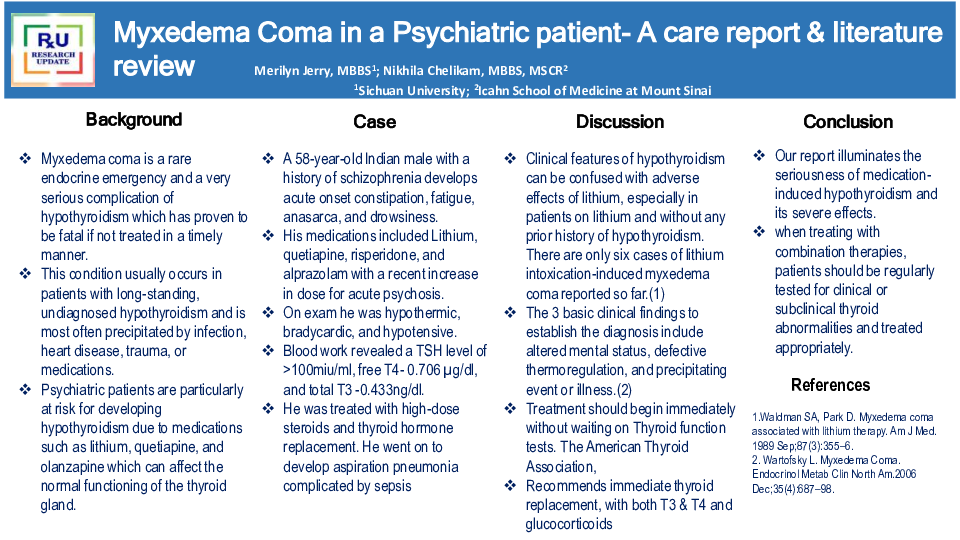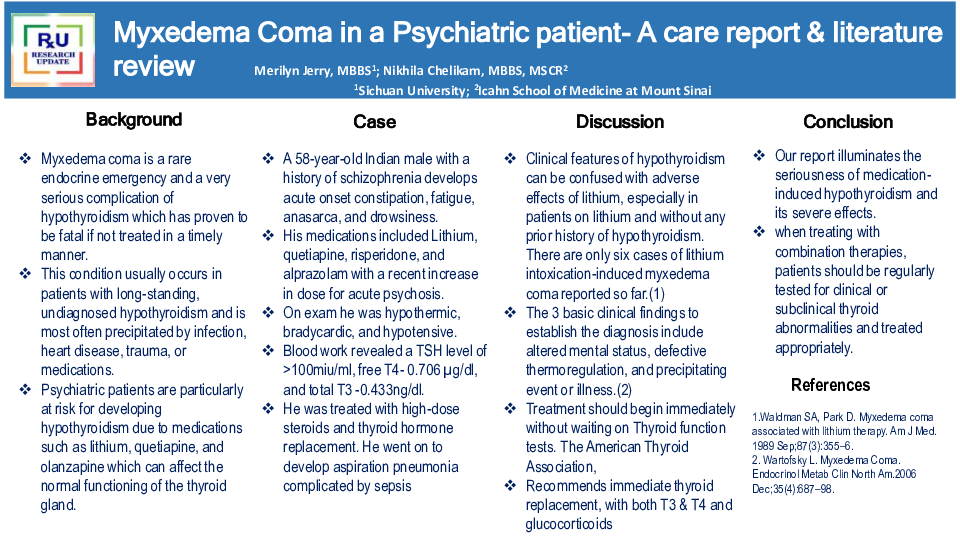Abstract
Background: Myxedema coma is a rare endocrine emergency and a very serious complication of hypothyroidism which has proven to be fatal if not treated in a timely manner. This condition usually occurs in patients with long-standing, undiagnosed hypothyroidism and is most often precipitated by infection, heart disease, trauma, or medications.
Psychiatric patients are particularly at risk for developing hypothyroidism due to medications such as lithium, quetiapine, and olanzapine which can affect the normal functioning of the thyroid gland. A psychiatric patient with exacerbation of psychotic symptoms should be screened for hypothyroidism as it could be myxedema madness, a rare reversible cause of psychosis.
Case: Here we present a case of lithium-induced myxedema coma in a 58-year-old schizophrenic patient with previously undiagnosed hypothyroidism. The patient started to develop symptoms like fatigue, severe constipation, generalized edema, and decreased mental status, all of which later appeared to aggravate. Initially, his symptoms were assumed to be side effects of an increased dose of tranquilizer and mood stabilizer which were given about a week ago to treat his worsening psychiatric symptoms. However, rapidly his condition worsened to an unresponsive state. His initial blood work disclosed severe hypothyroidism and a diagnosis of myxedema coma was confirmed. Despite intensive care and treatment with thyroid hormone replacement and glucocorticoids, the patient's condition did not improve and he passed away.
Conclusion: Physicians need to be watchful and anticipate the possibility of hypothyroidism and myxedema coma especially in patients who are on medications that can alter normal thyroid function. As patients with myxedema coma are at high risk of mortality, treatment must be initiated with hormone replacement without waiting to obtain the laboratory results.






